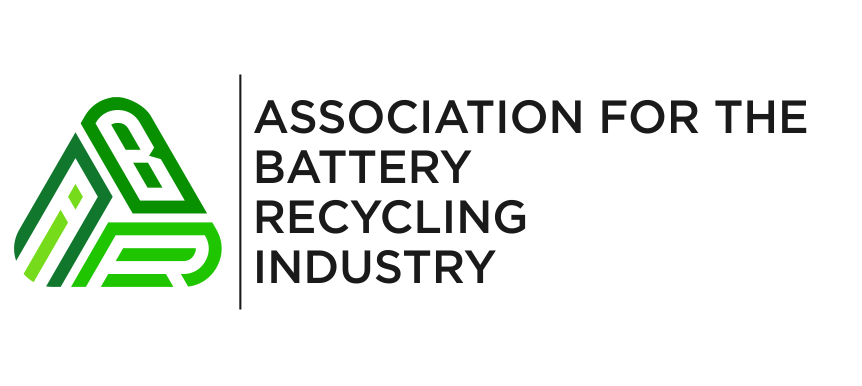24 June 2024
1. Environment Ministers are accelerating work towards product stewardship for all batteries - Inform the industry’s battery recycling policy and advocacy priorities
Environment Ministers (21 June) made it clear that quick action is needed on battery fires to protect lives and property. Their Communique said the issue “… required interventions through the battery life cycle – from their design to the way they are stored and disposed of at their end of life. Ministers agreed to accelerate work towards product stewardship for all batteries jointly led by QLD, NSW and Victoria and that work on product stewardship including a draft Regulatory Impact Statement will be undertaken by December 2024.”
ABRI would like to hear from members about your policy priorities. for developing a sustainable (including financial) battery recycling sector, turbocharging the industry and addressing critical challenges. This will inform ABRI’s discussions with QLD, NSW and Victoria as well as stakeholders across the waste, automotive and energy storage sectors,
As businesses leading the way in the battery circular economy, ABRI asks you to share your views by completing this survey to inform advocacy:
to divert batteries from landfill
support the expansion of a safe and sustainable battery recycling industry so that it’s ready to meet the opportunities provided by electrification
The information from this survey, discussions at ABRI’s conference and interviews with members will be used to develop a policy paper for release in August and inform Environment Ministers and agencies in ongoing discussions about industry priorities. ABRI CEO, Katharine Hole, will reach out to members to discuss their priorities and develop the policy paper.
Thanks to the ABRI members who have already completed the policy priorities survey.
2. Reminder - Certification Framework and Processes for Reusing EV/Hybrid Batteries (1pm, 25 June)
Many thanks to ABRI Member, IM-Group, who will share an update on work undertaken with the National Transport Research Organisation (NTRO) to investigate and prove the concept of a robust technical ReUse Framework against which commercial process/service providers can be independently assessed and evaluated by an external certifier, such as NTRO.
Electric Vehicles (EVs) & Hybrid Battery Electric Vehicles (HBEVs) are fast becoming the standard for energy-efficient, responsible, climate-conscious travel.
These vehicles are powered by battery technology. Notwithstanding, it is recognised that the service level/performance provided by such batteries does reduce over time, towards a finite service life. An industry sector is emerging, but (currently) there is significant variation in the approach, technical competency, ethics, and quality of current commercial process providers.
Achieving compliance with the framework will result in the award of an industry-recognised certificate, which would afford the process/service provider recognition and commercial certainty over uncertified entities.
Details: Online, 1-2pm, Tuesday 25 June, Register
3. Victoria - clarification on battery recycling responsible entities under the Circular Economy, Risk, Consequence and Contingency Planning Framework
The Victorian Department of Energy, Environment and Climate Action has clarified which categories apply to end of life batteries under the inaugural Circular Economy Risk Consequence and Contingency (CERCC) Plan - Appendix 3 – Market share table. For ABRI members operating in Victoria, batteries fall under two waste service type categories. If you fall within one of these categories, you can assess your market share against the total market size for that sector to determine if you are a responsible entity and therefore need to prepare a Plan.
Waste categories applying to end of life battery management:
E-waste- batteries (Energy Storage Systems) - This waste type is only relevant for Energy Storage Systems (ESS) associated with solar photovoltaic systems with the following chemistries: lead-acid, lithium-ion, nickel-cadmium, salt water and zinc bromine. Essential waste recycling or resource recovery (WRRR) service providers involved in the management or disposal of these specific types of batteries need to assess market share against the category 5.2 in Appendix 3.
Hazardous Waste (organic, inorganic and reactive) - The scope of the Hazardous (organic, inorganic and reactive) waste type is lead acid and nickel cadmium batteries (that are not associated with solar photovoltaic systems), as well as other hazardous organic, inorganic and reactive materials that are not batteries. If an essential WRRR service provider is involved in the management or disposal of batteries that are lead acid or nickel cadmium but not associated with solar photovoltaic systems, they need to assess market share against the figure for 2.13.
If an essential WRRR service provider is involved in the management of batteries that do not fall into the categories listed above, they are not required to assess market share for the purposes of CERCC Plan 2024 due to the absence of reliable market size data.
Responsible entities have until 11:59pm on 8 July 2024 to notify the Head, Recycling Victoria of their status by completing the Notification Form and emailing it to RVResponsible.Entity@deeca.vic.gov.au Responsible entities will then be required to prepare and submit a Responsible Entity Risk, Consequence and Contingency Plan (RERCC) by 30 September 2024.
If you have further questions, please email RVResponsible.Entity@deeca.vic.gov.au
4. ABRI Member Events
25 Jun 1-2pm Online – IM-Group presentation Certification Framework and Processes for EV/Hybrid Batteries Register
UPDATE - 15 Aug Sydney – 2024 ABRI Battery Recycling & Manufacturing Summit. Tickets are now available. The ABRI Executive Committee has reduced ABRI member ticket prices by 20% from 2023 ticket prices as a value add for ABRI membership. Early bird finishes Friday 14 June. Purchase tickets.
WATCH THIS SPACE
2 Sept - Sydney - Workshop on lithium battery storage
Late October - Perth - Networking event and information session
5. ABRI media and stakeholder engagement
18 June ABRI supports calls for Environment Ministers to act on battery disposal
5 July - ABRI represents industry on the Qld Department of Environment, Science and Innovation Management of End of Life Batteries Stakeholder Reference Group
23 July - ABRI presentation to over 200 TAFE Queensland trainers on the battery circular economy
30 July - ABRI participating in Global Battery Alliance’s EV Battery Circularity project
